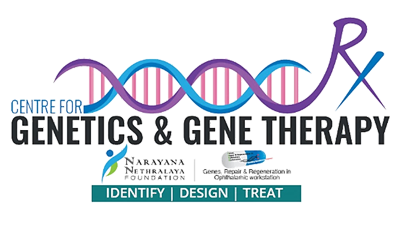quasi architebeat vitae dicta sunt explicabo nemo enim ipsam voluptatem quia voluptassit.
Dr. Anuprita Ghosh
-
Narayana Netralaya Foundation > Dr. Anuprita Ghosh

Anuprita Ghosh, PhD
Principal Investigator, Genetic Counsellor anupritaghosh@narayananethralaya.com+91-8066660712
Curriculum Vitae


About Narayana Nethralaya Foundation
Reliable Agroscience & Soil Analysis Research.
Excepteur sint occaecat cupidatat non proident sunt culpa qui officia deserunt mollit anim id est laborum. sed spiciatis unde omnis natus error Inventore.
Medical Research
Excepteur sint ocecat pro dent sunt in culpa qui.
Blood Resources
Excepteur sint ocecat pro dent sunt in culpa qui.
Clinical Services
Explore Our Main Services.

Clinical Microbiology
Tests
Excepteur sint ocecat pro sunt in culpa. qui officia deserunt mollit anim id est. perspiciatis unde.

Testing for Traces &
Impurities
Excepteur sint ocecat pro sunt in culpa. qui officia deserunt mollit anim id est. perspiciatis unde.

Clinical Biochemistry
Tests
Excepteur sint ocecat pro sunt in culpa. qui officia deserunt mollit anim id est. perspiciatis unde.
Permanent Staff
Test Completed
Wining Awards
Years Of Exps.
Testimonials
What Our Patient Say?
Lorem ipsum dolor amet consectet adipiscing sed do eiusmod tempor incidunt labore dolor magna aliqua ipsum suspen disse.

Robert Downey
New YorkLorem ipsum dolor amet consectet adipiscing sed do eiusmod tempor incidunt labore dolor magna aliqua ipsum suspen disse.

Robert Downey
New YorkLorem ipsum dolor amet consectet adipiscing sed do eiusmod tempor incidunt labore dolor magna aliqua ipsum suspen disse.

Robert Downey
New YorkTeam Member
Focusing Your Mind, with The
Best Expert.
Chairman's Foreward
-
Cutting edge biomedical research is the backbone of current and future treatments and diagnostic modalities for all human diseases. Therefore, the vision of NNF is to achieve this by supporting scientific research focused on studying real-world clinical problems and striving to solve them. Along the way the superlative academic efforts of the team have been appreciated in scientific and clinical congregations nationally and internationally, which speaks for the quality of work. Continued collaborative efforts across the scientific and clinical spheres will definitely help to provide new scientific tools at the level of patient treatments, for the benefit of all involved. While it may take time for scientific rigor and enabling translation of technologies, the research at NNF will herald new horizons expanding our knowledge of diseases and means to tackle them
Research Interests
Ocular surface associated blindness is a major world-wide problem. Currently, there are over 7 million blind in India (as per National Programme for Control of Blindness, World Health Organization, Eye Bank Association of India). Most of these conditions can be prevented by early detection and management. These conditions include corneal wounds/scarring (in defence sector, in factories, accidents, childhood trauma etc), adverse refractive surgery complications, infections, keratoconus, Keratitis, trachoma and corneal erosions. In most cases, the pathogenesis and progression characteristics of the disease are not quite well characterised. However, the role of inflammatory and fibrotic signalling under the control of the NFkB and TGFβ pathways have been documented. In addition, in our recent studies, we have demonstrated novel roles of matrix enzymes, transcription factors and inflammatory mediators as drivers for progressive diseases like keratoconus and corneal wound healing. We have also discovered novel associations of Vitamin D with specific pro-inflammatory factors in tears of patients with corneal disease. Using in vitro models we also observed immunomodulation as a possible therapeutic modality for such conditions and curcumin is therefore hypothesized as one such effector. Hence, harnessing the utility of natural products like Curcumin and Vitamin D that have known immunomodulatory functions for topical applications would be beneficial in the management and prevention of potentially blinding corneal conditions. There are no such formulations of natural compounds available that have specific utility in immunomodulation for human disease since the basic molecular mechanisms are not well understood. In addition, some currently available eye drops are not for specific application to corneal surface disorders and hence it is important to assess functionality of these molecules on specific disease related molecular pathways in human eye.
Inherited retinal disorders (IRDs) cause photoreceptor degeneration or dysfunction12. Advances in sequencing technologies have enabled progress in the identification of IRDs. However, functional characterization of the identified variants has remained a paucity. This becomes relevant, especially in cases of identified novel variants or variants exclusive to the Indian ethnicity as most information available comes from western populations3. One such IRD is Leber congenital amaurosis which causes early-onset rapid retinal dystrophy. IRD therapy options are limited. In addition to the available FDA-approved RPE-65 gene therapy, Luxturna, multiple pre-clinical and clinical gene therapy trials are in progress. However, due to early onset, severity and sometimes delay in clinical reporting the therapeutic time window is short. Our research team works toward the identification of functional disruptions caused by variations identified in cases with LCA. The variants are characterized through various in vitro and in vivo experiments for the identification of the molecular pathogenesis of the disorder. These are further correlated with the phenotype to understand the effects of the variant such as function, age of onset and progression. This information can be vital for the identification of molecular targets for potential management and/or therapy.

